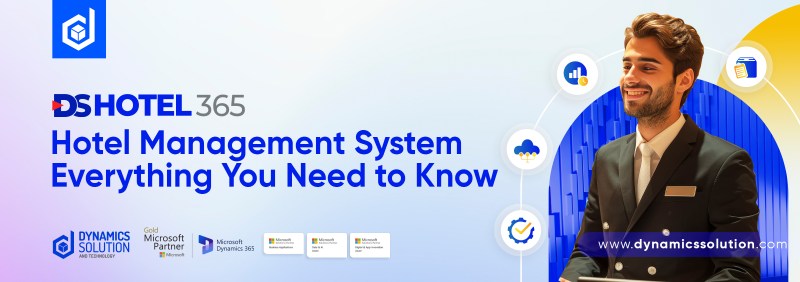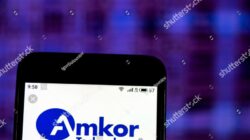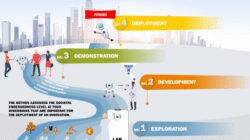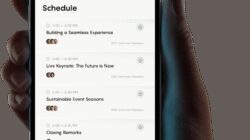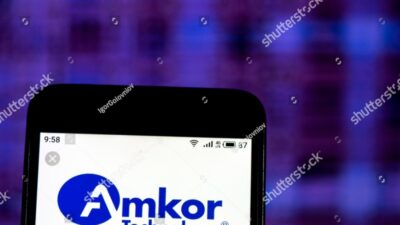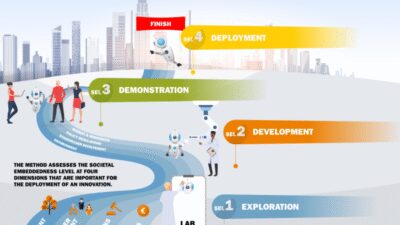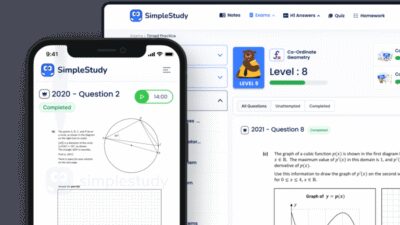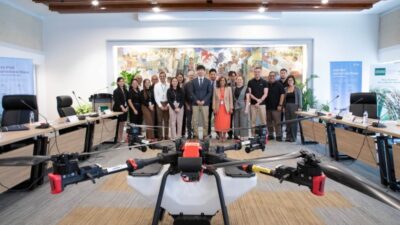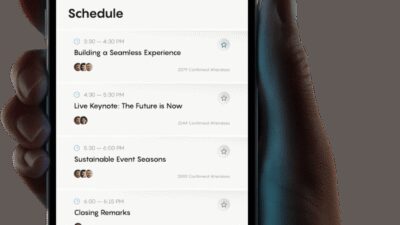Technology Hotel Management – The typical online travel consumer today is exposed to more than 38, 983 micro-moments within 60 days, and visits an average of 18 websites through several devices to eight sessions before making a reservation of hotels (Google Research).
With the explosion of the “ digital way of life ”, the customer’s journey has become more and more complex, forcing hoteliers to review not only their corporate and marketing strategies, but also their technological stack in order to involve, acquire, service and retain these travel consumers digitally enabled through various digital points of contact and all digital channels and devices.
Technology Hotel Management

Today’s hospitality is being transformed into a 100% activated industry for digital technology fueled by online tools and applications, mobile, cloud, yacht, alas and blockchain. Digital technology is becoming all aspects of the industry: hotel operations, hospital services, communications, revenue management, distribution, CRM and marketing.
Hotel Management Software: Features You Need To Succeed
Today’s hotelier must understand, know and use digital technology solutions in their daily environment and evaluate, evaluate, recommend and acquire technological solutions to improve customer satisfaction, operational efficiencies, productivity, customer service and income.
If we leave the traditional hotel operations, administrative/back office and human resources technology and the hotel engineering engineering infrastructure and “mechanical” technology (which are usually “hidden” from customers), there are two categories of guest -oriented digital technology:
Today, the vast majority of hoteliers are mainly focused on guests’ service technology, while also engaged in the technology of participation, acquisition and guest retention.
Unlike hoteliers, the OTAs concentrate exclusively and invest only in technology of participation, acquisition and retention of guests, as they do not have to worry about the technology and experiences of guests. In other words, the technological focus of hoteliers and investments end where the focus and investment of the OTA begins.
Hms Hotel Management System
It is not surprising that over the last 6 years the OTAs have increased their market share by 40% at the expense of the direct channel of the hotel. Investing a lot in technological applications to involve the traveler in all possible contact points of the customer’s trip, the OTAs have monopolized guests’ relationships and left hoteliers.
There are crucial aspects of the category of technology of participation, acquisition and retention of guests that the hospitality industry ignores, not excellent or is not dramatically achieved by including:
For the past 15 years or so, the industry has improved a bit better when adopting online distribution technology: Cloud -based website reserve engines (WBE), Central Reserve Systems (CRS) and channel management platforms. However, many independent hoteliers still use separate sellers from WBes, CRS and channels. WBES that are not mobile or have a weak operating time record, and some hotels are even a WBE and CRS provided by an OTA. To reduce friction and lower costs and sellers management efforts, evaluate and select a cloud -based distribution technology salesman providing the three capabilities: WBE with a proven user experience record (UX), CRS and channel manager, with a two -way API Tom PMS on your property.

More than 95% of independent hotels, tourist centers and casinos do not have an adequate revenue management system (RMS). A RMS is a predictive analysis technology platform for accurate and often real -time data processing, preview of demand, prices and segments optimization and channels optimization. A RMS allows the property to sell rooms at the right price, at the right time, through the right channels and appropriate customers, which can lead to a significant increase in employment and income. Look for a cloud -based RMS with lower implementation and SAAS costs in progress, usually at a price per room/month.
2025 Tech Report: Key Ems Trends In Hospitality
More than 95% of independents have no significant CRM application as part of their stack of hotel technology. A CRM technology platform usually provides guests’ profile management with cleaning and overflowing communications, invited pre-state communications, stay communications, post-state communications, guest satisfaction surveys, marketing automation, continuous marketing, loyalty and guest recognition programs. If the repeated guests of the property are 10% and higher, you need a CRM solution to help you double or triple this number. A cloud -based CRM is the best way to go today.
The monitoring and reaction to your clients reviews has become an obligation of the hospitality industry. An OMM system usually includes feeling analysis, accounting analysis, reputation monitoring, guests’ satisfaction surveys and analytics. Using Orme, hotels can understand what the feelings of the traveling public are towards their property in front of their competence and can proactively affect the reviews and online assessments of their guests, better understanding their guests and making improvements that deal with the problems posed in the reviews. In a predetermined manner, current ororm services are based on clouds and subscriptions.
All property marketing efforts involve technology and digital applications. Marketing is used to involve travel consumers in the dream and planning phases, acquire them in the reservation phase and re-involve them in reminiscence and post-stage phase. The digital marketing technology stack includes:
Normally, independent and medium -sized hotel trademarks or minor subcontract the digital technology needed for specialized digital marketing companies enabled in technology.
The 8 Major Hotel Management Challenges 2022
The website of the property or the hotel brand has become the gravitational center of all the efforts of the hotelier to involve, acquire and retain the client. Hotel marketing efforts today bring potential customers to the hotel website. Today’s website technology includes the cloud -based content management system (CMS), the comprehensive merchandising suites, the reservation abandonment tools, the customization and the content price, the technical SEO, the cloud accommodation and the sturdy analytical suite.
Many hoteliers often do not understand the crucial role of the hotel’s website and its user experience (UX) in the general health of property and the bottom line. With almost 59% of online travelers now visiting the Mobile Devices Hotel website, a mobile design websites is essential.
According to Google, 53% of visits are abandoned if a mobile site takes more than three seconds to load. On average, the hotel websites are downloaded in 6 seconds or more. The mobile -sensitive website with cloud and CDN accommodation (content delivery network) provides much better server response time and faster discharge speeds.

The first -level mobile website of your property must be supported by a website technology platform and a content management system (CMS) that include specific mobile functionalities for the needs of hoteliers, such as:
Hotel Property Management System: Revolutionizing Hospitality
Current hoteliers must create and manage a robust digital presence and involve, acquire, serve and retain travel consumers in this increasingly mobile world. They need to understand and invest in digital technology and marketing that allow the best possible user experience, provides the best customer service, increases efficiencies and increases income.
Until recently, hotels offered better technologies and services compared to the homes of many customers. This is no longer so. Today’s travel consumer enjoys better home technologies and services: high -speed Internet, voice attendees such as Alexa, streaming of supports such as Hulu or Netflix, smart televisions and refrigerators yacht and/cs.
From a technological perspective, the challenge for hoteliers is to create a hotel and room environment that, at least, coincides, but preferably exceeds the surroundings of its customers’ house. In other words, hotel and room technology, comforts and functions must be the same or better than those who already enjoy at home. These include:
The future of this technology is the smart guest room, which will be completely personalized for the guests’ preferences and the profile of a member of fidelity. Hilton Hotels through its connected room and Marriott through their Guestroom prototypes are already working on synchronizing profiles and preferences of loyalty members with room experience: room temperature, lighting, bathroom accessories, media preferences, drinks, bedding and much more. Hilton’s CEO Christopher Nassetta recently stated, “Imagine -a world where the room knows you and knowing your room.”
Hotel Management Software Development: Features, Cost, And More
For consumers obsessed with DIY, kiosks, devices and mobile applications of self -service have already entered the market and enjoy wide adoption, both for hoteliers and guests. The most common devices and applications are:
Chark-Intessive/Relief Hotels: These devices based on the lobby normally offer the identification of guests, room updates and special offers, early check-in, room selection/task, online registration card and signature, acceptance of hotel policies, credit card payments and key card issuing.
All large hotel chains and many smaller/smaller hotel brands provide their loyalty members to the mobile entry registration from anywhere, the selection/task of rooms, the ability to customize the stay, the ability to receive alerts (traffic, climate, when the room is ready), obtain the key to the mobile check-in or mobile key, the credit card payments.

These invited information kiosks serve as a virtual concierge 24 hours of the day and source of information for both property information and destination, which increases the functionality of the lobby, reduces the waiting times of concierge and improves the experience of the guest.
Bachelor Of Hotel Management & Catering Technology At Sgvu Jaipur: A Complete Guide
These mobile or website applications allow the interaction of guests 24 hours a day through the messaging with the virtual concierge, which can make suggestions, service orders and track the status of applications. This technology improves the experience of guests and generates additional income from auxiliary services and increases.
These AI requests have already received wide acceptance and adoption in the market, especially for customer service reserves and call center. All the OTAs and the main hotel brands have deployed some form of a chatbot or customer service application with strong. Some OTAs already manage up to 85% of their online customer service using an IA Chatbot, which has led to a great cost of costs and an improvement in customer satisfaction.
These F&B kiosks usually provide a complete order of the menu with real -time order information sent to the kitchen, inventory management, credit card payments and printed receipts or by email.
Hoteliers are overwhelmed by the number of silos of technology, data and digital marketing and the need to work with a multitude of sellers
